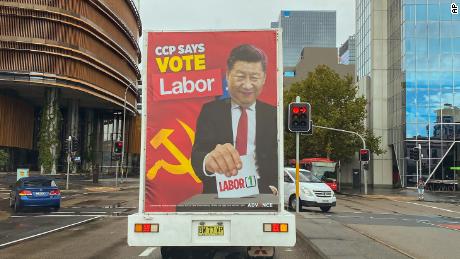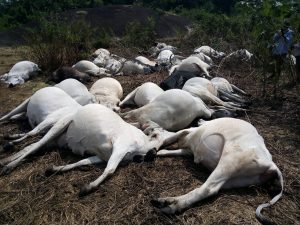Xi Jinping looms large over Australia’s election

The Chinese leader, though not a participant in any modern democracy, has become a familiar presence in a campaign dogged by allegations of foreign interference and partly fought on issues of national security. Xi’s face is not only on billboards, his name has come up in press conferences, interviews, and election debates between Australian Prime Minister Scott Morrison, who leads a Liberal-National coalition, and the Labor Party leader who wants to replace him, Anthony Albanese.”Xi has changed the nature of the Chinese Communist Party … It’s more forward leaning. It’s more aggressive. And that means that Australia, of course, must respond,” said Albanese during a leaders’ debate, in words that appeared to echo the government’s hardline stance.Before the federal election campaign even started, accusations were being hurled that China wanted a Labor win. One week out from the vote on May 21, public opinion polls — though notoriously unreliable — suggest that it may actually happen, putting a Labor government in power for the first time since 2013.How that may change Australia’s relationship with China has been a common question ahead of the vote. The coalition has suggested Labor will be soft on China — a serious accusation by a government whose defense minister recently warned that, in order to preserve peace, Australia must “prepare for war.”On paper, it seems there is little difference between both major parties on foreign policy. Labor says it’s committed to the AUKUS security pact, the deal Morrison struck with the United States and United Kingdom, to the detriment of Australia’s relations with France. And both support the Quad, the loose four-way alliance between Australia, the US, India and Japan that is set to meet in Tokyo next week, after the election.It’s not clear yet who will attend on Australia’s behalf, but analysts say that person faces a tough challenge when it comes to China — especially after a bitter election campaign that has put Xi and his intentions front and center.The unraveling of relations China was always going to play a role in the Australian election, as a regional heavyweight with significant trade ties to a smaller nation that it relies on for iron ore and coal, if not other sanctioned exports.Xi’s rise to power in China neatly aligns with the coalition’s latest stint in government — both took office in 2013, and since then relations have deteriorated, most rapidly in the last six years. Some of the angst stretches back to 2016, when links emerged between a senior Labor senator and a wealthy Chinese businessmen, prompting a closer inspection of alleged foreign political interference. Under then Liberal Prime Minister Malcolm Turnbull, laws were passed preventing foreigners from donating to Australian political campaigns, among other measures, and a ban was imposed on Chinese telecoms giants Huawei and ZTE from building Australia’s 5G network. After the 5G ban, China’s foreign affairs spokesman urged the country to “abandon (its) ideological prejudices.”Relations soured further in 2020 when the Australian government — then led by Morrison — called for an investigation into the origins of Covid-19. China responded with sanctions against Australian exports, including beef, barley, wine, and rock lobster.Charles Edel, the inaugural Australia Chair and a senior adviser at the Center for Strategic and International Studies (CSIS), said China’s aim was to make Australia more compliant, but it hasn’t worked. “It has had the opposite effect,” he said. “It hardened public attitudes in Australia and pushed Canberra to lead the charge against China’s coercive actions.”According to the “Most people don’t have that level of engagement with politics in the first place to make that messaging effective. Hence why (the coalition) is probably going a little bit more negative, and a little bit harder on things.”Edel, from CSIS, said no matter who wins, Australia has a better chance of improving its relationship if it stands its ground, and that’s possible under either leadership.”While there may be differences in tone and approach, both parties now support increasing Australia’s defense budget, working more closely with the United States and other like-minded countries, countering China’s push into the Pacific, calling out Beijing’s egregious human rights violations, and taking actions to protect Australia’s democracy,” he said.However, Laurenceson said a calmer approach and the realization that Australia can’t dictate China’s relationships in the Pacific would go a long way towards putting the relationship on a firmer footing.”There’s a track record of overreaction and panic, that’s for sure. And how does that actually help you respond?” he said. “Having a strategy with a goal of denying the Beijing enhanced relationships in the region is just ridiculous. It’s unrealistic. So yes, let’s take it seriously, let’s respond with a clear strategy. But let’s make sure our assessments and our strategy are at least based on reality.”





